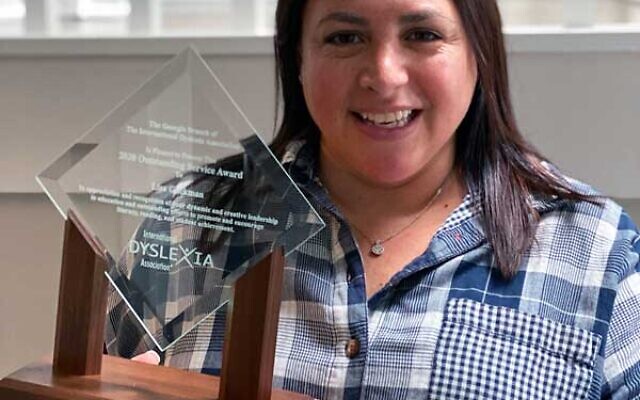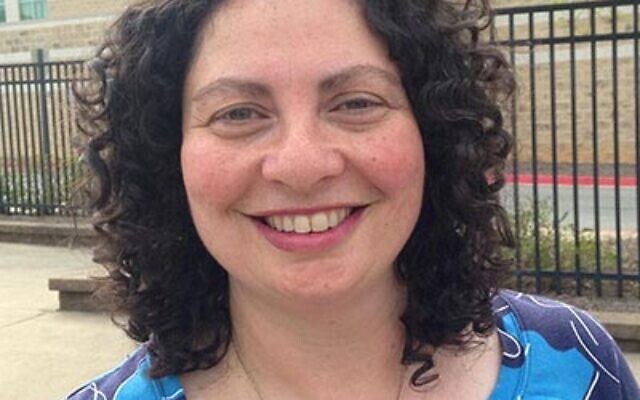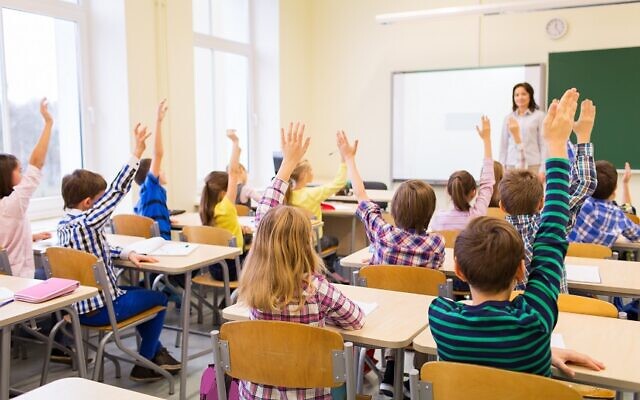New State Laws Restrict Public Education System
Teachers blame the COVID pandemic and many are leaving their jobs as a result.

The last two-plus years of the COVID pandemic have impacted everyone. There have been restrictions, illness, isolation, confusion and misinformation. But, according to several local Jewish educators, the pandemic has also had a huge, negative impact on the public educational system.
These teachers say that new state laws limiting what is taught in the classroom have resulted from the fact that parents became more involved in their children’s educations during pandemic-induced virtual learning. As a result, teachers are leaving the profession.
“COVID was the match” that started it all, said Lisa Glickman, a local educator for more than 20 years who now works for the Atlanta-based nonprofit Reading is Essential for All People (REAP), dedicated to improving reading proficiency in Georgia public school students.

“I think that teachers, by the time they were in the midst of COVID already, were at the breaking point, taking care of their families and trying to teach. It was super stressful. Teachers felt they were being put in danger,” teaching in the classroom during the pandemic.
“What’s going on now is frightening,” agreed Harriet Litzky, a retired veteran teacher and educator, referring to the current state mandates that regulate what can and cannot be taught in the classroom. “It’s such a hard job anyway and this is another layer. How much can teachers take?”
In fact, as Glickman points out, “good teachers feel it’s not worth the time.”
Rachel Mandell, a third-grade teacher at The Epstein School, said she questions herself about why she continues teaching, “but I love the relationship with the kids.”

She also points out that she is lucky to teach at a private school, which is exempt from new state laws regulating how and what students are taught. “We’re not limited in what we talk about, and no books are censored. It would be hard for me to be in a public school.”
In Georgia, the new legislation takes aim at the teaching of race and “divisive concepts,” empowering parents to remove books considered “obscene” or inappropriate from public school libraries and curricula. In April, Gov. Brian Kemp signed the package into law, giving parents more control over the content of their children’s education.
Called the “Parents’ Bill of Rights,” the new law codifies the “fundamental right of parents to direct the upbringing and education” of their children.
Litzky, who has taught in both public and private schools, said she recalled when there was “freedom to just be a teacher. When you go into education, you were your own boss in the classroom. I loved teaching history and social studies. I taught about Jim Crow laws. If I had a parent looking over my shoulder,” she said, she wouldn’t want to be a teacher.
“I’m thrilled to be out of the classroom,” said Glickman, who added that she’s “trying to convince my daughter not to be a teacher. It’s just everything is so politicized. The problem is people are trying to push an agenda on public schools.”
Glickman is particularly incensed about the growing focus on removing books about gender, race and other controversial issues from schools and curricula. “We’re so worried about books being banned and we should be worried about whether the children can read. Reading is a civil right.”

She works for REAP, training teachers in reading instruction. According to REAP’s website, there’s a reading crisis in education today. Students are leaving school and even graduating without basic literacy skills. REAP states that 37 percent of Georgia’s fourth graders cannot read at a basic level, while 68 percent can’t read proficiently. And kids who can’t read proficiently by third grade are four times more likely to drop out of high school. Struggling readers, REAP adds, are more likely to be underemployed, unemployed or even go to jail.
At least one educator believes that these efforts to regulate and restrict what is taught in classrooms goes against the Jewish tradition.
“Judaism has a different approach,” said Rabbi Ruth Abusch-Magder, director of education for the Atlanta-based Be’chol Lashon, Hebrew for “in every language.”
According to its website, Be’chol Lashon embraces the historical diversity of the Jewish people in order to strengthen “Jewish identity by raising awareness about the ethnic, racial and cultural diversity of Jewish” experience.
Pointing out that she knows of teachers who have left their careers due to politicized interference in their classrooms, Abusch-Magder argues that Judaism encourages discussion about controversial subjects.
“We need to have space for difficult conversations in the classrooms. The Jewish educational philosophy is to create critical thinkers, and these [state] laws are problematic. We want to help people understand the complexity of the world,” she said.
According to Abusch-Magder, “What I value about Judaism is that it gives us the opportunity to have the difficult conversations. We don’t hide from them and that can be uncomfortable at times, but the goal of education is to prepare children to live in the world. Jews know history has a lot for us to learn from. Not talking about it doesn’t serve us well.”
She also pointed out that “we tell stories about antisemitism not just to tell about suffering but about survival. The same is true about racism. We all have to learn that power has the ability to corrupt. Any one of us has the potential to become an oppressor. We all must know this and learn from history and storytelling that we have to make choices.”
As far as book banning, Abusch-Magder said, “No way, no how.”
Even prior to the enactment of new state laws, reading scores in Georgia indicated that the educational system wasn’t working in the state, said Glickman.
“We’re going back in history. No one is paying attention to the teacher shortages and outcomes. And the problem is that education could fix a lot of our problems, like crime and the economy.”



comments